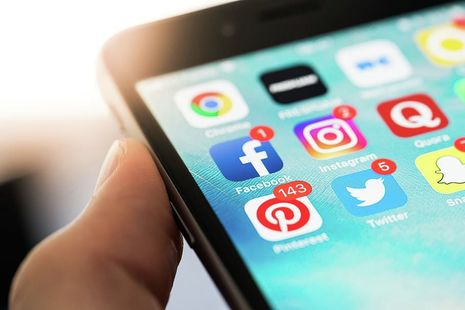Social media is ruining our mental health – something needs to change
In the wake of Ian Russel’s calls for new laws regarding technology giants and their data, it is time for the severity of social media’s negative impact to be properly addressed, argues Sarah Ibberson

Content Note: This article contains detailed discussion of mental health and graphic images.
14-year-old Molly Russel took her own life in 2017 after viewing content promoting depression and suicide on social media platforms. This tragedy extends beyond her death, for she is one in a long line of young people driven to suicide after viewing harmful content online. Four school-age children die each week from suicide in the UK.
The first generation of people to grow up with social media are just reaching adulthood, and so the long term effects are equally just being realised. The regrettable truth is that it often takes the action of people like Ian Russell, Molly Russel’s father, to follow up on their own personal grief for any change to occur. His recent appeal calls for new laws that would force technology companies to share their data to facilitate research on the cognitive effects of frequent social media use.
Tech giants make their money through advertising. Algorithms ensure users view material based on its relevance rather than chronology. In this way, users are being presented with material designed to increase views and advertising revenue. This algorithmic framework incurs a very serious problem: as soon as someone turns to the internet after contemplating taking their own life, they are fed a stream of content that, rather than discourage, only rationalises their self-harming thoughts. These companies count their profits in the billions. Why is it acceptable that children are allowed to suffer at the hands of tech giants for want of increased regulation?
“The longer users engage with this process, the more dangerous the emotional and mental effects can become.”
The tragic death of Molly Russell drastically highlights the immediate threat that harmful online content can pose to young people. Moreover, it opens up a wider argument on the effects of social media on society’s mental well-being in general. Even viewing supposedly safe content can have potentially harmful consequences that do not become immediately apparent.
Ostensibly harmless material buys into the notion of projected happiness; that is, a virtual façade displaying only the best facets of peoples’ lives, which often invokes feelings of negativity among viewers if their own experiences do not compare. Indeed, the modern day pursuit of happiness has been distorted by the influence of social media and its projection of genuine emotional stability where none may exist. The longer users engage with this process, the more dangerous the emotional and mental effects can become. Stress, anxiety, depression, and low self-esteem are just a few of the insidious complications that social media can give rise to.
Although 91% of 16 to 24-year-olds use the internet and social networking sites regularly, the long term effects of social media are remarkably underestimated. In preliminary research, Twitter has been identified as a platform that can significantly increase levels of stress, and correlations have been drawn between symptoms of anxiety and increasing social media usage. Indeed, a study from 2017 suggested rates of depression and anxiety in young people had risen by 70% over 25 years. Even Facebook, which has 1.49 billion daily users, has acknowledged that social media can be bad for mental wellbeing.
However, this growing body of evidence still lacks the concrete research needed to back up its conclusions. The rapidity with which we have welcomed technology into society, with little regulation, has resulted in the perpetuation of an endless cycle of problems, including the deteriorated mental health of millennials who are increasingly living their lives through screens.
With so much time, money, and effort put into making our world a better place, it is ironic that our online world is left behind. Paradoxically, social media is encouraging users to move more of their lives into the digital and out of the real world. When the very real consequences of our digital lives materialise, it can be difficult to extrapolate these existential problems to origins in a virtual space.
Technology, the internet, and social media are here to stay, and the way in which society currently uses these platforms is not sustainable for the mental well-being of the population. If used and regulated responsibly, it could become a much more positive platform. For now, it will continue to be inhibited by its insidious consequences.
 News / CUP announces funding scheme for under-represented academics19 December 2025
News / CUP announces funding scheme for under-represented academics19 December 2025 News / Cambridge welcomes UK rejoining the Erasmus scheme20 December 2025
News / Cambridge welcomes UK rejoining the Erasmus scheme20 December 2025 News / SU reluctantly registers controversial women’s soc18 December 2025
News / SU reluctantly registers controversial women’s soc18 December 2025 Film & TV / Timothée Chalamet and the era-fication of film marketing21 December 2025
Film & TV / Timothée Chalamet and the era-fication of film marketing21 December 2025 News / News in Brief: humanoid chatbots, holiday specials, and harmonious scholarships21 December 2025
News / News in Brief: humanoid chatbots, holiday specials, and harmonious scholarships21 December 2025









